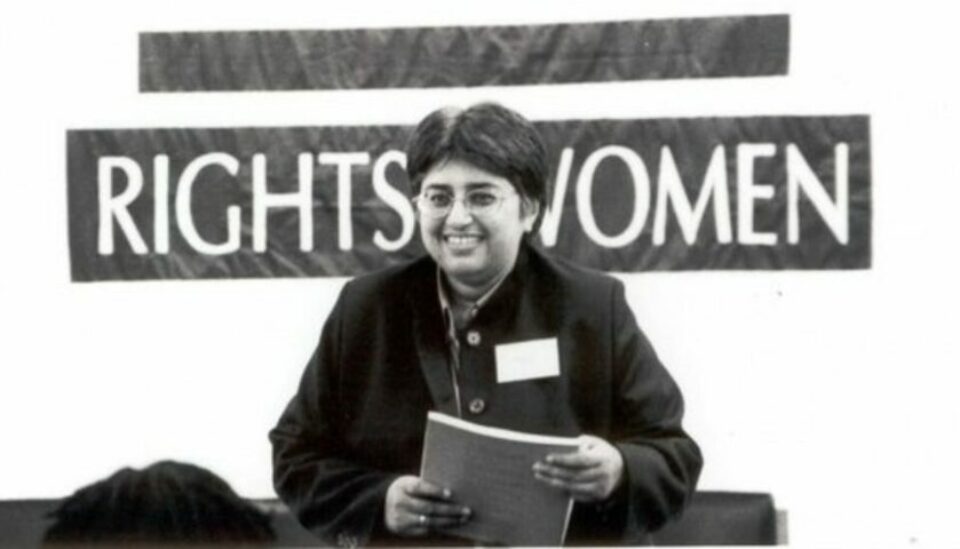We are saddened to learn that Ranjit Kaur passed away on 25th November 2022. Ranjit Kaur was Rights of Women’s (ROW) first Director from 2000 to 2007. We are indebted to her for building our organisation up from the grassroots and pay tribute to the many significant contributions she made to women’s access to justice in England and Wales. We remember her as a kind and formidable woman who was a staunch defender of women’s legal rights.
Under her leadership our services were developed and our commitment to addressing Violence Against Women and Girls was strengthened. She explained how the lived experience of women was the foundation that drove the development of our organisation during her tenure: “The issues we focused on were largely determined by the issues women shared on our advice line and our advice services developed substantially over the years.”
Our specialist criminal law advice service for women affected by violence was established in 2005 by Ranjit and later won the Lilith Award for Best Voluntary Sector Violence Against Women project. She also led on the publication of our first edition of From Report to Court: a handbook for adult survivors of sexual violence. She was committed to supporting women and determined to ensure that the handbook reached every woman reporting sexual violence who needed it, to enable them to have access to their rights and justice. She is fondly remembered for gathering a team of women in the basement of our building amongst a tower of boxes of handbooks and personally taking on the unenviable task of posting copies to every single police station in England and Wales. This handbook remains a vital resource for women survivors and professionals and we think she would be proud that the seventh edition is due to published soon, built on the foundations of her work. Ranjit was committed to ensuring the accessibility of the legal guidance we produced and ensured many of our publications were translated into different community languages.
Ranjit was known for her unwavering commitment to ensuring Rights of Women worked from an intersectional feminist perspective that focused on the experiences of Black and minoritised women. Ranjit championed this within her leadership in many ways including organising our national conferences Women’s Rights are Human Rights in 2000 and BMER women and violence: where’s the justice? in 2007. She led on influential campaigns within ROW alongside others in our sector including: the Domestic Violence Concession which was introduced in 2002 for women on spouse visas applying for indefinite leave to remain; the rights of women in relation to forced marriage (recognised in the Forced Marriage Act 2007) alongside Black and minoritised women’s organisations; and challenging the no recourse to public funds rule alongside Southall Black Sisters. She also campaigned for legal recognition of lesbian couples including rights in relation to children which were recognised under The Civil Partnership Act 2004.
She is remembered as respectful and collaborative in her leadership within our staff and volunteer team. Although not a qualified lawyer herself, she had studied law and was keen to ensure our legal staff team were valued for their work and credited for the valuable service they provided. She was keen to ensure women in the organisation could develop and was known for passing on key opportunities to her staff so they could excel and grow.
Ranjit’s commitment to women’s rights was extensive, influential and supportive in relation to the continuation of the wider women’s movement and sector that ROW is part of. She was instrumental in the early discussions about setting up the Rosa Fund. Her powerful advocacy as a public speaker is also proudly remembered including her delivery of the opening speech at the first Million Women Rise March in 2008.
Our organisation today has grown from the vision and integrity that Ranjit left as a legacy. She was sharply aware that the free legal support Rights of Women provides to women survivors was essential to plug a gap that had been left open by a lack of availability to affordable or accessible legal advice via the mainstream:
“Access to justice was and remains a key legal challenge for women. Rights of Women helps women access the law by other means than through lawyers.” – Ranjit Kaur

